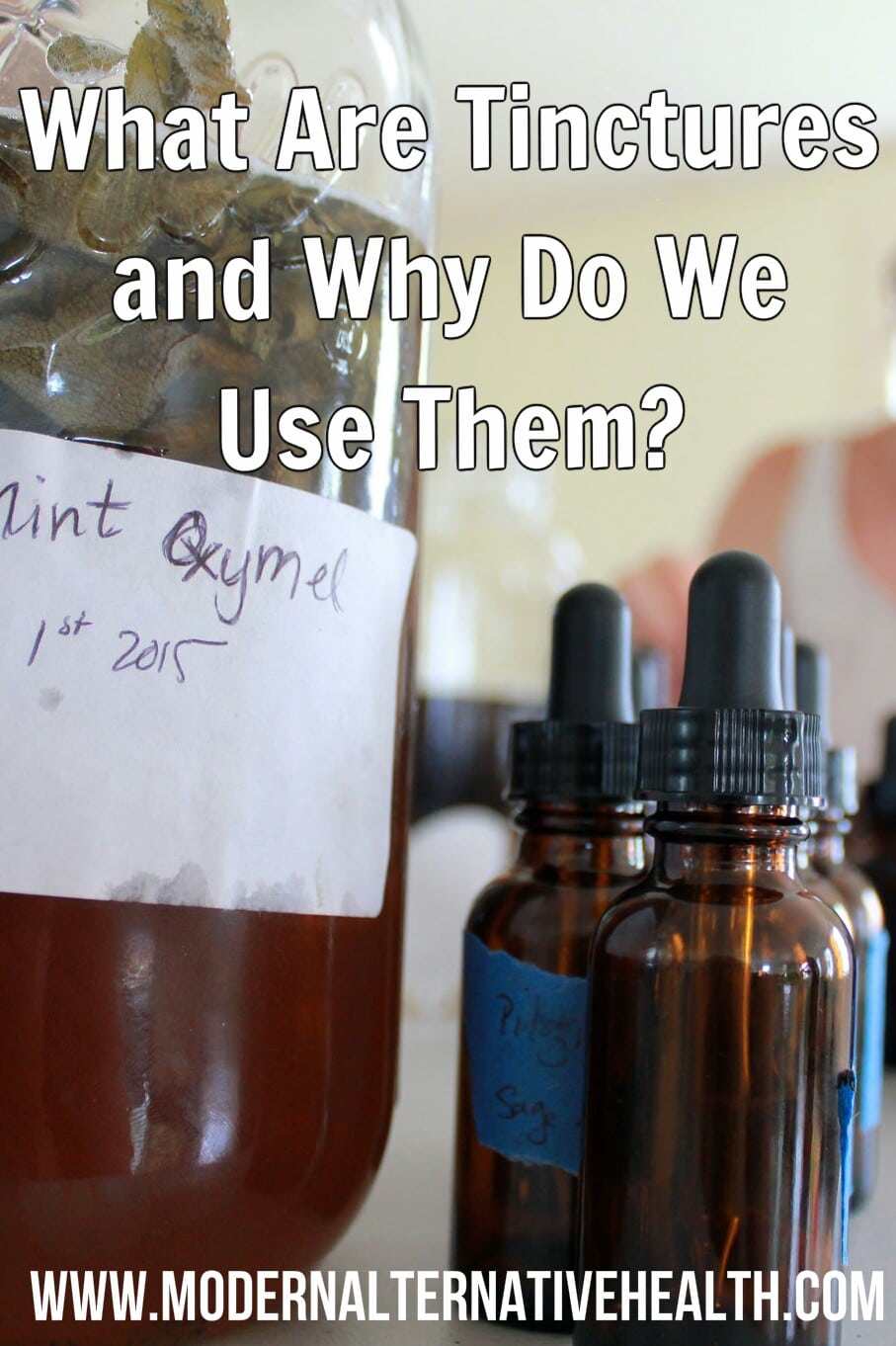Herbal tinctures are easy to use and easy to make home remedies that every home should have. Find out more about them, how to use them, and best recipes.
By Jackie Scrivanich, Contributing Writer
One of my most rewarding and challenging parts of the natural lifestyle journey I am on is all the do-it-yourself things. Why use paper towels when you can make your own cloth napkins? Why use chemicals to clean when vinegar works just great? Why use over-the-counter medicines for simple things that an herbal tincture can help with?
My natural journey is filled with many things that I make myself. I have learned to sew fairly well. I used that newfound skill to make cloth wipes, nursing pads, cloth pads, and even fix elastics in my cloth diapers. I have learned to make many foods from scratch and even experiment with new types of food options. Kombucha is another thing we make regularly now. My kids fight over the Kombucha we brew in our home.
Along my natural journey, along with many other things, I stumbled upon tinctures. I tend to self-diagnose and use herbs and food to address the issue. Obviously when necessary I will seek the help of a naturopath or other natural-minded professional I trust. But many times for sore throats, slight anxiety, coughs, and other commonplace ailments we will treat at home with herbs. One way we use herbs is in the form of tinctures.
What are Tinctures and Why Do We Use Them?
A tincture is a liquid extract made from an herb, or blend of herbs. You take the tincture orally in order to use it. A tincture is a natural remedy for a variety of different ailments. Some tinctures help with sleep, others with cramping, others can boost your immune system and more!
To make a tincture you take herbs and add them to a glass jar. Add unfiltered water and alcohol and/or vegetable grade glycerine to the jar of herbs. To determine best combination check out here. Put the lid on the jar and shake. Let sit for at least 6 weeks in a dark, cool place. Pour tincture through cheesecloth to separate liquid from herbs. Use the liquid, which is now a tincture. Here are more detailed directions.
Are Tinctures Safe?
Tinctures are extracts of herbs. So it is very important to understand herbs and their contraindications. It is important that to have the understanding that herbs are medicines and need to be treated with respect. Just because you do not need a prescription for it does not mean you can use it recklessly.
Many herbs are safe to use for different ailments. It is important that you research to ensure the herbs you are using are safe for you and your family. Some herbs are not good for when pregnant, for example. It would be wise to invest in a good herb book to help guide you. I have the added benefit of having a good friend who is an herbalist to answer my questions or I can just have her make the tincture for me.
So tinctures are as safe as the herbs that you use in them.

Image by Sterling College.
How Should I Use Tinctures?
The best way to take a tincture is to place the drops directly under the tongue. This allows for maximum absorption. Try not to eat or drink for at least ten minutes after taking a tincture.
Another way to take tinctures is to add to a cup of hot water to make a tea or dilute it in juice.
Personally, I use a small medicine cup or shot glass. I put the amount of tincture I want in the cup and then I add water and drink it quickly. Since tinctures are oftentimes made with alcohol they are not very enjoyable.
Use a tincture as long as you need to, but just like many herbal remedies, tinctures are not meant to be used for the long term. They are to help you get balanced so you no longer need them.
Tinctures for the Whole Family?
Tinctures are a great way to get herbs into your kids quickly and safely. Instead of having them drink and entire cup of tea you can just use a tincture. Which is infinitely more easy to do when you have little ones. Here is a child dosage guide. While tinctures are generally safe, it is still important to understand the basic child dosage guidelines.
It is important to note that tinctures made in alcohol have about the same alcohol content as a ripe banana, so no need to worry about that.
Tinctures are great for when you travel as a family. They are compact and light for traveling. Also they allow for you to be prepared for common ailments easily without having to find a health food store, which is not always easy to find when traveling.
Best Tinctures to Have on Hand
Since tinctures take at least six weeks to make it is important to figure out which ones to keep on hand at all times. Depending on what your family make up looks like will determine which herbal tinctures you should have on hand. For example, you may want to have a teething tincture if you have young infants. Everyone would benefit from having immune boosting tinctures at home.
My first experience with tinctures was a mixture of five different adaptogens. These are a class of herb that helps balance your body and hormones. It was amazing for when I was postpartum and having different mood swings and such.
Many people have their go-to herbs and thus their go-to tinctures. I asked a few natural-minded friends which tinctures they feel are the most important to have on hand at all times.
- Elderberry tincture — amazing for boosting your immune system. We use elderberry syrup often and we will be adding elderberry tincture as well to our regime when we start to feel sick.
- Valerian root tincture — This tincture helps you to get sleep when you feel restless.
- Raspberry leaf tincture — is great for women’s health and is high in vitamin C so is good for an immune boost.
- Maca root tincture — is amazing for any issues with infertility or low sex drive. Good for both men and women.
- “Calming Tincture” — Having calming tinctures on hand would be beneficial, like chamomile, lavender, and skull cap. You could even mix these for a combined tincture.
- “Tummy Tincture” — A mixture of peppermint, ginger, and fennel would make a great “tummy tincture”.
- Lemon Balm Tincture — If you have anxiety, then keeping a lemon balm tincture would be helpful.
There are so many different options out there for tincture uses and which herbs to use. It is important to do some research and figure out what will work best for you and your family.
Herb Tincture Recipes to Check Out
- Immune Boosting Tincture
- Another Immune Boosting Tincture
- Cramp Tincture
- Multivitamin Tincture
- Cough-away Tincture
- Teething Tincture







Can you post recipes for the Raspberry leaf, elderberry, lemon balm, and calming tinctures? Or are they pretty much all the same?
Also is there a sheet to give an idea of dosage for the above?
Thank you!
Where can I find the ingredients for the Cough BeGone? I would like to try this for my family but unfortunately my son who is epileptic can not have herbs that are used for respiratory such as eucalyptus and rosemary. Where do I find the ingredients? TIA
Hi Lea! I am so sorry for the delay in responding to this! The Kids version ingredients are: Mullein leaf* Fenugreek seed* Dandelion root* Vegetable glycerin* and Filtered water. You can find the ingredients on the product listing when you scroll down and click on the the Ingredients Box. Here is the listing: https://earthley.com/product/cough-b-gone-herbal-extract/